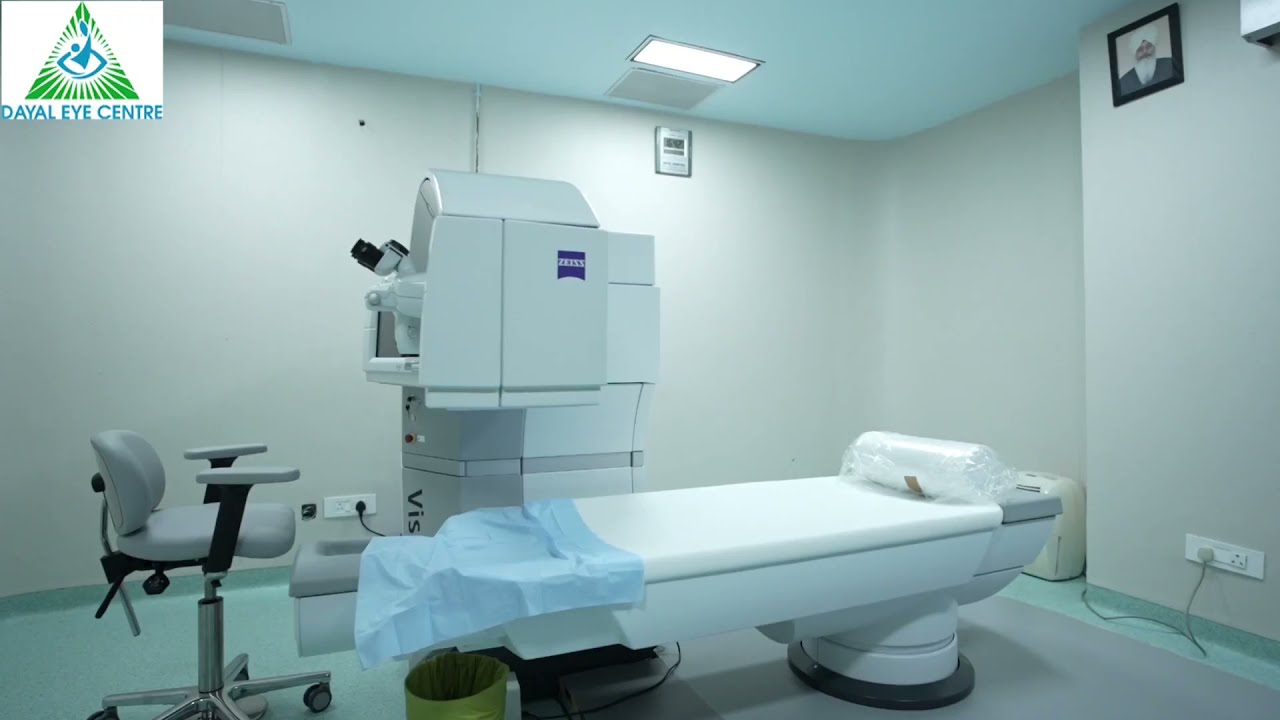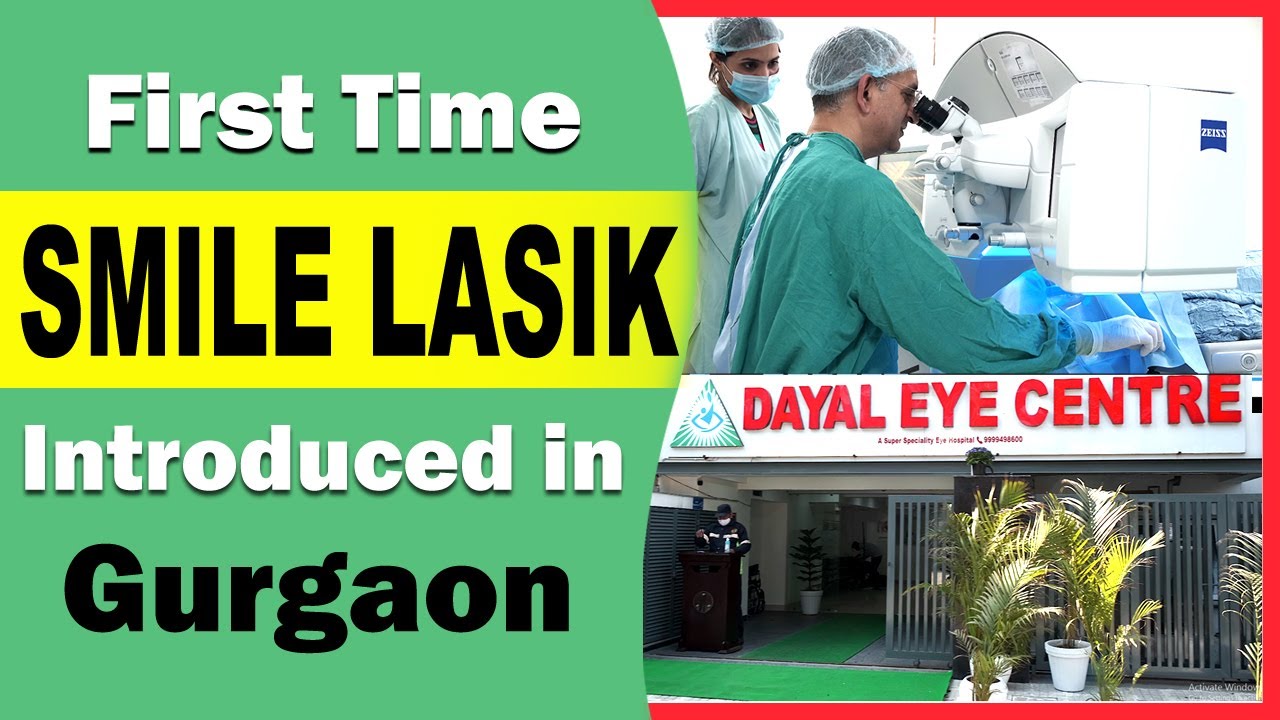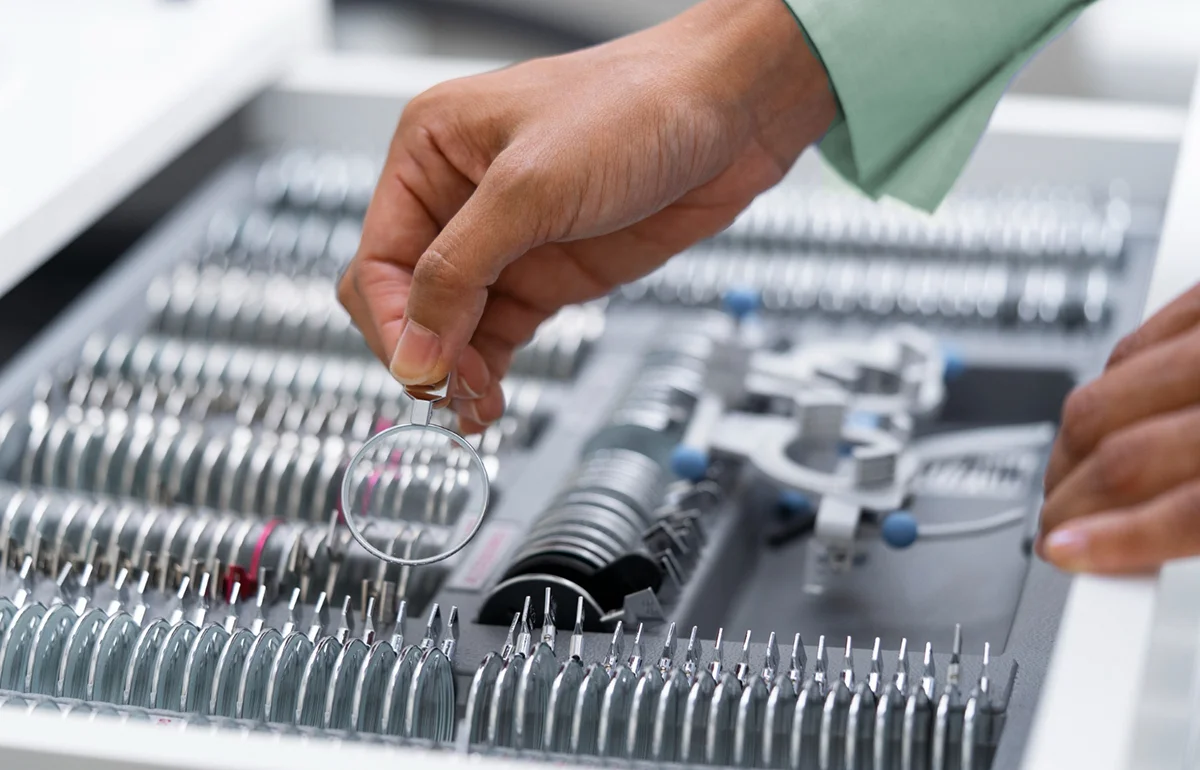Best Glaucoma Care in Gurgaon
Glaucoma is a serious eye condition that damages the optic nerve due to increased pressure inside the eye. This happens when excess fluid builds up in the front of the eye, leading to gradual vision loss. If left untreated, glaucoma can cause permanent blindness, especially in older adults. Early detection and proper treatment are crucial to preserving vision.
1,25,000+ Eye Operated
Cashless Payment
NABH Accredited
Get Free Consultation from Our Expert Doctors
Advanced Technology
Expert Professionals
Personalized Care
On Time Service
20+ Years of Trust
Excellence Achieved in Eye Care Field











Dayal Eye Centre
Dayal Eye Centre is a leader in ophthalmology, committed to providing the best eye care with the motto, “You and Your Eyes are Our Top Priority.” Established with a focus on excellence, our skilled surgeons and specialists offer top-quality treatment backed by over 120,000 successful surgeries. We use the latest technology to guarantee the best results at affordable prices. As an NABH-accredited facility, we adhere to the highest standards of care.
What is Glaucoma Surgery?
Glaucoma surgery is a procedure aimed at lowering eye pressure to prevent further damage to the optic nerve. The surgery either improves the drainage of the aqueous humor (the fluid inside the eye) or reduces the amount of fluid produced. This helps to control intraocular pressure, which is a key factor in managing glaucoma and preserving vision.
At Dayal Eye Centre, we specialize in advanced glaucoma surgery techniques. Our expert surgeons use the latest technology and treatment methods to ensure the best results for managing glaucoma, helping to protect your vision effectively. Book a consultation with our doctors today for expert advice on glaucoma treatment.
What Causes Glaucoma?
Open-Angle Glaucoma
- The most common type of glaucoma.
- The exact cause is unknown.
- Pressure increases slowly over time without noticeable symptoms.
- Damages the optic nerve, leading to blind spots.
- More likely in individuals with a family history of glaucoma.
Secondary Glaucoma
- Caused by another condition.
- It can be triggered by medications like corticosteroids.
- Eye diseases, such as uveitis, can cause it.
- Other health conditions, like diabetes, may increase the risk.
- Eye injuries can also lead to secondary glaucoma.
Closed-Angle Glaucoma
- Occurs when the drainage channels in the eye become suddenly blocked.
- Leads to a rapid increase in eye pressure.
- It can be triggered by medications, including dilating eye drops.
- It is considered an emergency and needs immediate attention.
- If you have had acute glaucoma in one eye, your second eye is at risk.
Congenital Glaucoma
- Present at birth and occurs in babies.
- Caused by abnormal eye development.
- Often runs in families.
Symptoms of Glaucoma
Open-Angle Glaucoma
- In the early stages, most people show no symptoms.
- Vision loss may not be noticeable until it is severe.
- The main symptom is the slow loss of side (peripheral) vision, known as tunnel vision.
- In advanced stages, glaucoma can lead to blindness.
Angle-Closure Glaucoma
- Symptoms typically appear when the child is a few months old.
- Cloudiness in the front of the eye.
- Enlargement of one or both eyes.
- Redness in the eye.
- Sensitivity to light.
- Excessive tearing.
Angle-Closure Glaucoma
- Symptoms may vary, either coming and going or steadily worsening.
- Sudden, severe pain in one eye.
- Decreased or cloudy vision, often described as "steamy" vision.
- Nausea and vomiting.
- Seeing rainbow-like halos around lights.
- Redness in the eye.
- The eye may feel swollen.
Angle-Closure Glaucoma
- Symptoms are usually related to the underlying condition causing the glaucoma.
- Symptoms may resemble either open-angle or angle-closure glaucoma, depending on the cause.
Types of Glaucoma
- Open-angle Glaucoma: The most common type. The drainage angle in the eye becomes less effective, leading to increased pressure and optic nerve damage over time.
- Angle-closure Glaucoma: Occurs when the iris blocks the drainage path of the eye, causing a sudden increase in eye pressure. It is a medical emergency that needs immediate care.
- Congenital Glaucoma: A rare condition present at birth. The eye’s drainage system doesn’t develop properly, causing high eye pressure, which can lead to vision loss if untreated.
- Secondary Glaucoma: This develops due to another condition, such as eye injury, cataracts, or diseases like diabetes or high blood pressure. The underlying issue causes increased pressure in the eye.
Expert Glaucoma Specialists in Gurgaon
At Dayal Eye Centre, our renowned glaucoma specialists offer advanced treatments to manage and prevent vision loss.
(MBBS – GMC Miraj, MS – PGIMS Rohtak, Fellowship – PHACO & Glaucoma, Aravind Eye Hospital)
Dr. Sanjeev Bisla, Director & Chief Ophthalmologist, has over 20 years of experience in glaucoma care. His expertise in minimally invasive glaucoma surgery (MIGS) and laser treatments has helped countless patients. He has successfully performed 80,000+ cataract surgeries, making him one of the best in Gurgaon.
(MBBS, MD – AIIMS, New Delhi, Glaucoma Specialist & Researcher)
Dr. Digvijay Singh trained at AIIMS, New Delhi, and specializes in glaucoma surgery, neuro-ophthalmology, and advanced screening techniques. His contributions include 70+ research publications and the development of innovative glaucoma screening tools.
For expert glaucoma care in Gurgaon, book a consultation at Dayal Eye Centre today!
Doctor Instructions
Our Youtube Videos

2:15

3:27

1:28

1:33

2:49

1:42

Who Should Get Glaucoma Surgery?
- When eye pressure stays high
- When medicine causes problems
- When vision is at risk
- For narrow-angle glaucoma
- For long-term control
- When other treatments don’t work
- During cataract surgery
Our Expert Team
FEMTO LASER ASSISTED CATARACT SURGERY
At Dayal Eye Centre, we now offer Femto Laser-Assisted Cataract Surgery, a new and safer technique for cataract surgery. The surgery involves a laser rather than a blade to create small, precise incisions in the eye, hence making them more precise and gentle. It begins with a machine that maps your eye in a special way. This information is used to direct the laser to cut in the right place and depth to help heal the eye quickly. These incisions heal on their own and decrease the chances of complications after the surgery.
How Are We Best for Glaucoma Treatment in Gurgaon?
- Checks eye pressure to determine if it is higher than normal.
- Examines the optic nerve for any signs of damage.
- Tests vision to detect any areas of vision loss.
- Measures corneal thickness, which impacts glaucoma risk.
- Looks at the drainage angle to check for any blockages.
- Eyedrops to reduce eye pressure
- Laser surgery to open blocked drainage tubes or reduce fluid production
- A procedure to enhance fluid drainage and reduce eye pressure.
Eye Drops
- Prostaglandin Analogs
- Beta-blockers
- Alpha Adrenergic Agonists
- Carbonic Anhydrase Inhibitors
- Miotics (Cholinergic Agents)
- Rho Kinase (ROCK) Inhibitors
- Hyperosmotic Agents
- Combination Medications
Laser Treatment
- Trabeculoplasty: Helps facilitate easier drainage of fluid.
- Laser Peripheral Iridotomy: Creates a hole in the iris to allow better fluid drainage in angle-closure glaucoma.
- Cyclophotocoagulation: Reduces fluid production in advanced glaucoma cases.
- Scatter Panretinal Photocoagulation: Treats abnormal blood vessels in the retina related to neovascular glaucoma.
Traditional Surgery
- Trabeculectomy
- Peripheral Iridectomy
- Canaloplasty
- Drainage Implant Devices
- Blurry vision is common initially, but it improves over weeks.
- Redness, irritation, eyelid swelling, tearing, and foreign body sensation may occur.
- A shield may be provided to prevent rubbing or bumping, especially during sleep.
- Eyedrop prescriptions can change and new drops are prescribed to aid recovery.
- Multiple visits are required for monitoring and healing progress.
- Most patients experience minimal pain. Consult our doctor if pain persists.
- Avoid heavy lifting, strenuous activities, swimming, hot tubs, and eye makeup.
- Post-surgery driving restrictions. Resume based on comfort level and vision clarity.
- Meet our surgeon for an eye examination and diagnostic testing.
- Discuss your expectations and concerns with our surgeon.
- Review your health history and medications.
- Follow pre-operative instructions provided by our surgeon.
- Avoid nonsteroidal anti-inflammatory drugs (NSAIDs), aspirin, and other blood thinners to reduce bleeding risk.
- Arrange for a friend or family member to drive you to and from the appointment if sedatives or anesthesia will be used.
- Confirm which medications you can or cannot take before the procedure.
- Follow fasting instructions, typically avoiding food or drink a certain number of hours before the surgery, based on the anesthesia type.
- Numbing eye drops are applied to the eye.
- Local anesthesia and sedation may be used for incisional surgery.
- Laser surgery may be performed to reduce eye pressure by improving fluid drainage.
- In incisional surgery, a small piece of the eye wall is removed to create a drainage hole.
- Glaucoma implants may be used if other methods fail, where a small tube or filament drains the fluid, allowing it to be reabsorbed into the bloodstream.
At Dayal Eye Centre, we strongly encourage adults with a family history of glaucoma to get an eye exam to assess their risk for this condition. However, regular visits to a glaucoma optometrist are important for everyone to maintain eye health and protect vision.
If you are diagnosed with glaucoma, you may be an ideal candidate for treatment, which will depend on the type of glaucoma, its severity, and any other medical conditions. For those who don’t respond well to medications or other treatments, surgery may be recommended. If you’re unsure about glaucoma treatment options, get your detailed eye checkup today at Dayal Eye Centre for expert guidance.
- Meet with our surgeon for an eye exam and diagnostic tests.
- Discuss your expectations and review your health history and medications.
- Follow pre-operative instructions provided by our surgeon.
- Avoid NSAIDs, aspirin, and blood thinners to reduce bleeding risks.
- Arrange for someone to drive you to and from the surgery.
- Clarify which medications you can or cannot take before surgery.
- Follow instructions on when to stop eating or drinking before surgery.
- Surgery details depend on the type, Most laser procedures are quick and done in the doctor’s office.
- Complex surgeries may require sedation or general anesthesia in an operating room.
- Surgery time varies – laser procedures take minutes, while other surgeries can take up to an hour.
More Details About Glaucoma Surgery in Gurgaon
Cost for Different Glaucoma Surgery in Gurgaon
Average cost of Laser Glaucoma Surgery in Gurgaon is Rs. 35,000 to Rs. 40,000 per eye.
- Filtering Surgery or Trabeculectomy: Rs. 30,000 to Rs. 40,000
- Drainage Implants: Rs. 40,000 to Rs. 50,000
Types of lenses:
- Monofocal lenses: More affordable
- Premium lenses (e.g., trifocal): More expensive
Additional charges may apply for advanced procedures like robotic or laser-assisted surgery.
Pyment Options Available in Dayal Eye Centre

- Helps reduce eye pressure, preventing further damage to your vision.
- Slows down the progression of glaucoma by improving fluid flow and balancing eye pressure.
- Reduces or stops the need for eye drops, making treatment easier.
- Keeps your vision intact, allowing you to continue with daily activities.
- Lowers the risk of losing vision or going blind by controlling eye pressure.
- Uses smaller cuts and faster recovery with techniques like MIGS and trabeculectomy.
- Can treat both glaucoma and cataracts at the same time for better vision.
- Customizes the surgery to suit your specific needs, giving the best result.
- Keeps eye pressure under control for a long time with lasting effects.
- Gives peace of mind, knowing you are taking steps to protect your vision.

- The doctor will check your eye the day after surgery to make sure the surgery is working and lowering eye pressure.
- Keep your eye safe from injury. If your other eye has no vision, use a special shield to protect the operated eye.
- Keep your face and hands clean. Don't touch your eye. Wash your hands before using eye drops.
- Some redness and swelling are normal. Use the drops your doctor gives you to reduce it. Pain can be controlled with simple pain relievers.
- Go for regular check-ups to make sure your eye is healing well and catch any problems early.
- If your vision gets worse, you notice more redness, pain, or discharge from your eye, contact our doctor right away.
- Protect your eye after surgery, especially in sports or windy weather. Wear UVB sunglasses when you go outside.

Risk or Complications in Glaucoma
- Permanent vision loss
- Intraocular bleeding
- Infection
- Low eye pressure
Frequently Asked Questions
Our mission is to advance societal health by offering sustainable and affordable eye care solutions, while our vision is to be recognized as a center of excellence in the region. Conveniently located on the Delhi-Jaipur Highway, the Dayal Eye Centre combines advanced facilities, the latest technology, and personalized care to address your unique needs.
Does glaucoma lead to blindness?
Yes, glaucoma can lead to blindness if not diagnosed and treated early. It’s a leading cause of blindness for people over 60.
Is glaucoma hereditary?
Yes, family history is a significant risk factor for glaucoma, indicating a hereditary component.
What is open-angle glaucoma?
Open-angle glaucoma is the most common form, characterized by a gradual increase in eye pressure due to inefficient drainage of aqueous humor, leading to optic nerve damage.
Why is atropine contraindicated in glaucoma?
Atropine can dilate the pupil, potentially narrowing the drainage angle and increasing intraocular pressure, making it risky for individuals with certain types of glaucoma.
What are the first signs of glaucoma?
Open-angle glaucoma often has no early symptoms, but peripheral vision loss may occur over time. Acute angle-closure glaucoma can present suddenly with severe eye pain, blurred vision, halos around lights, and nausea.
Book Your Appointment
It's Time for Second Opinion
Working Hours
- Monday To Saturday: 8:30 am - 7:30 pm
- Sunday: Closed
Fill out the form below to request your consulting appointment. We’ll confirm your appointment and send you a reminder.




